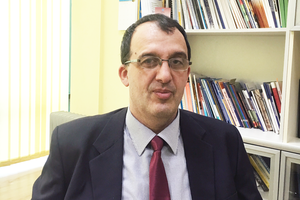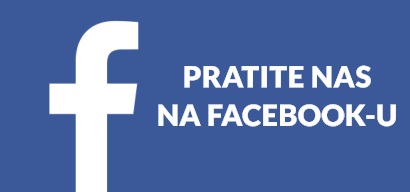Empowering citizens through education in Kosovo

FES Connect: The Kosova Education Center (KEC) has started implementing projects linked to human rights in 2003. What role does education play in preparing citizens to participate actively in democratic life and establishing a socially just society in Kosovo?
Pupovci: The role of education in preparing citizens to actively participate in democratic life is crucial. Kosovo is a developing country facing a lot of challenges which impede its social and economic development, among others, high level corruption and irresponsible behaviour of political elites. Therefore, it needs a very well-educated electorate which understands major issues facing the country and demands accountability from elected officials. For a stable democracy we need responsible and engaged citizens and good education is a means to achieve this.
One of the core competencies of the Kosovo Curriculum Framework is civic competency. This enables students to act as responsible citizens by taking into account both their immediate and wider contexts. KEC has implemented different activities within its programming contributing to the development of this competency among young people. In addition to working directly with students, we have organized the Academy for Education for Democratic Citizenship and Human Rights Education. With the academy we aim to strengthen democratic culture in schools by training education professionals and community stakeholders, as well as by further developing their capacity to implement and promote Education for Democratic Citizenship and Human Rights Education in their schools and communities. For example, one school project which took place in a multi-cultural community promoted participation and equal representation of students from different ethnic groups in decision making at school level, resulting in improvement of school climate.
How can education institutions and teachers ensure that their classes focus on democratic engagement amidst the current pandemic?
Democratic engagement is a cross-cutting concept that can be successfully incorporated in all school subjects. Teachers must consider inclusion of topics and activities geared towards advancing democracy in all subjects thus spreading specific messages that contribute to strengthening the civic competency of all students. It is not only about the content, but also about the school culture. Democracy is not something that we learn but it must be something that we live. For sure, democratic engagement can be well integrated in distance learning, meaning that engaged citizenship can be promoted during pandemic as well. It could be done by working on various learning projects promoting democratic engagement, and also by organizing online sessions of pupil councils, discussions on various topics of interest for the community, and so on. For example, a learning project critically appraising government measures in response to COVID-19 crisis would contribute to the development of critical thinking skills and promote active citizenship.
You recently had your first ever online training and even an online certification ceremony. What were the unique challenges you faced in going digital?
I have to admit that we had a different perception of online training in our organization. In fact, a few weeks before the pandemic was declared we started developing our first ever online training courses for teachers, parents and students which are to be delivered in asynchronous mode. This is still work in progress. However, when we found ourselves in a lockdown we decided to adapt some training courses for synchronous delivery mode by using existing platforms. In seven weeks, we delivered 5 training programmes to 373 participants and even organised an online certification for a group of 30 participants who completed the training.
The main challenge was to get used to technology and replace face-to-face activities with digital ones. Also, you cannot keep people 8 hours in front of a screen, so we had to organize the training in shorter sessions through several days. Most of participants in our trainings are teachers and they had to strike the balance between their online teaching duties and participation in training. So we had to be quite flexible with the schedules and training often took place in evening hours.
What is your vision of a post-COVID-19 education in Kosovo?
I do hope that the world will return to some kind of normalcy soon, but we cannot disregard the lessons learned during the pandemic. One of them is that we need to be prepared to go online any time. If the first outbreak caught us by surprise, the second one should not. So, the Ministry of Education and schools must build their capacity for distance learning by improving infrastructure and developing new learning resources. This lockdown has shown that our teachers are not bad at all in using technology, so the use of technology should be encouraged when they get back to schools. We have to think about those children and young people who do not have access to technology – it is estimated that up to 10 per cent of students in Kosovo were unable to participate in online learning because of that.
Also, it would be very useful to encourage the sharing of resources developed during pandemic which include online lessons, demonstrations, quizzes, manuals, and so on.
Considering the pandemic, in what direction do you think innovation in teaching methodologies is heading globally?
Apparently, this pandemic accelerated innovation in education. It has made more room for use of innovative teaching and assessment methods, as well as for independent student learning. If we are to promote the use of technology in the future then distance learning will be one of the ways to do it, so it may easily happen that, in many systems, the provision will be delivered in a blended form. Some teaching styles do not make sense in an online environment and teachers need to gradually adapt to new standards. Also, the assessment demonstrating retention of knowledge is not the most suitable one for online learning and must be replaced with assessment of project work or similar.
